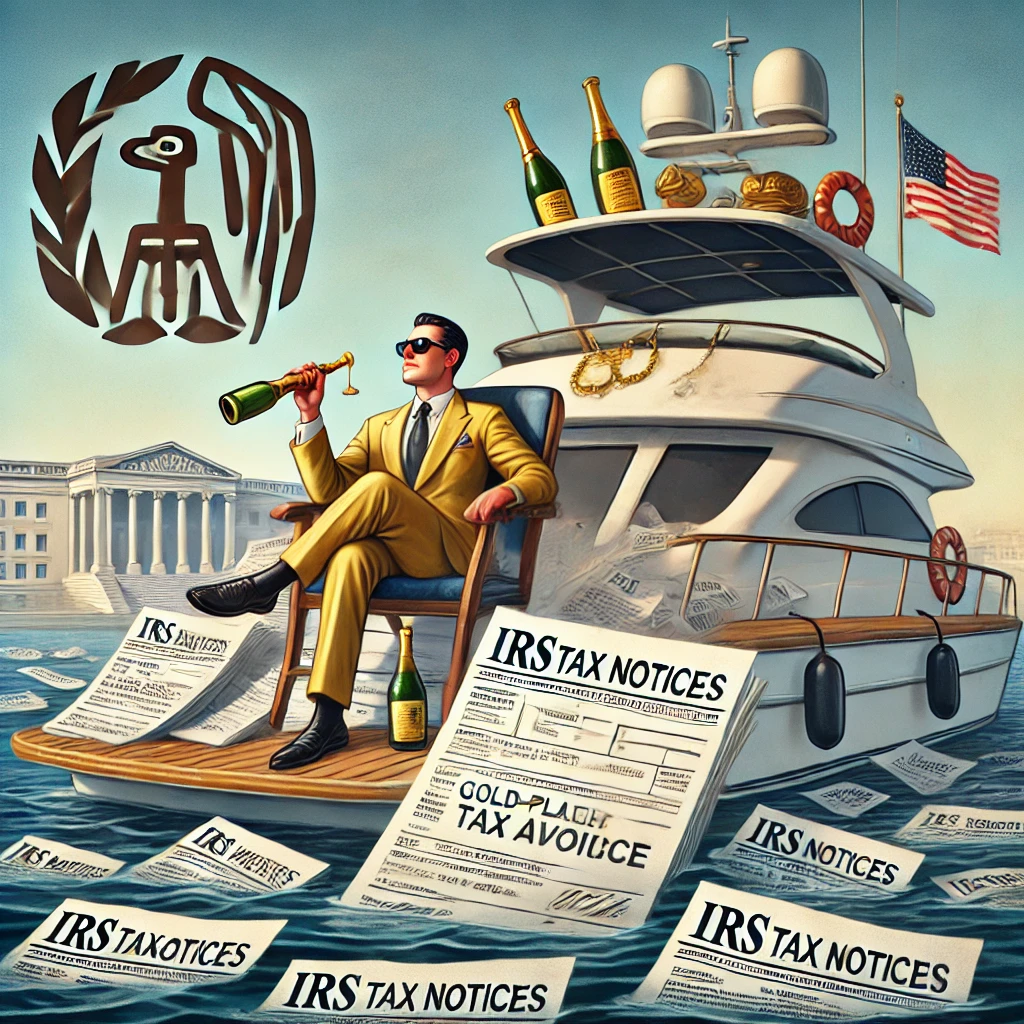Well, well, well, the IRS is rolling out its red carpet again, but not for the usual suspects. This time, the guest list is exclusive: 125,000 high-earning Americans who apparently decided taxes were optional sometime between 2017 and 2022. Bravo, folks. If you’re pulling in over $400,000 a year (or over $1 million for the VIP section), filing your taxes must feel so… pedestrian. Who has time for that when there are yachts to buy, golf memberships to renew, and offshore havens to scout?
According to the IRS, these aren’t the clever folks exploiting every obscure loophole in the tax code with an army of accountants. Nope, these are people who just didn’t bother to file at all. You know, the financial equivalent of ghosting the government.
“Not Filing Is the New Filing”
Imagine this: You’re making $1 million a year, and Uncle Sam is standing there, hand out, like Oliver Twist asking, “Please, sir, may I have some taxes?” But instead of complying, you give him a smug smile and head off to Cabo. Bold move. Who knew that the true mark of success wasn’t just earning a lot of money but actively pretending the IRS doesn’t exist?
Of course, the IRS has noticed. They’re sending out 125,000 love letters—formally called notices—to remind these individuals that taxes aren’t like RSVP-ing to a party: optional, with no hard feelings if you don’t show up. The message is clear: “We’re onto you, and we want our cut.”
Hundreds of Millions in Lost Revenue
To be fair, the government isn’t crying poor exactly. But with “hundreds of millions of dollars” allegedly gone missing because of these non-filers, one can imagine Treasury Secretary Janet Yellen rubbing her temples while muttering something about national debt ceilings.
And why wouldn’t she? After all, those hundreds of millions could’ve funded something important, like… oh, who are we kidding? It probably would’ve been earmarked for some vaguely defined infrastructure project or to pay off another ballooning interest payment. But hey, at least it’s not sitting in some Florida mansion’s gold-plated wine cellar.
What Happens Next?
The IRS promises this isn’t about punishment but “bringing people into compliance.” Isn’t that sweet? No stern lectures, no public shaming (yet)—just a gentle nudge to remind you that taxes are, in fact, a thing. Rest assured, if these individuals ignore the notices, the IRS will likely ramp things up. You know, start garnishing yachts or perhaps seizing assets with the same determination as a dog chasing a steak.
Offshore Thoughts
For those of us in the offshore investment community, the lesson here is clear: It’s not about avoiding taxes altogether; it’s about doing it the right way. Offshore investments, trusts, and structures exist to legally minimize tax liabilities while staying well within the bounds of compliance. Because let’s face it—being smart about your money is far classier than pretending you lost the government’s number.
And hey, if you’re one of the 125,000, maybe it’s time to start looking at legitimate ways to reduce your tax burden—before the IRS shows up to collect in person.
Invest Offshore: Where planning ahead beats scrambling for receipts. Every. Single. Time.

Leave a Reply